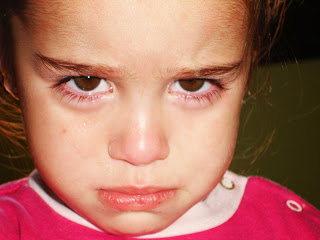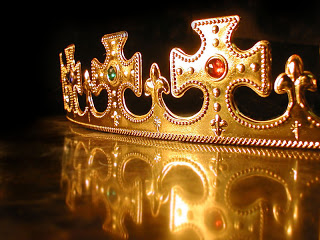Does every child experience doubts about his or her parents? As in, “I wonder if they are really my parents? Who am I, really?” It’s very common (according to Dr. Lisa, and especially if there is an older sibling who has planted a few seeds of doubt!) for children to suspect that they have somehow been switched at birth and ended up in the wrong family. We may share our children’s birth stories with them, but working against them we have many many stories throughout history that speak of doubt, in the form of “foundling” stories or stories of abandoned children who achieved greatness.
One of the greatest of these is the story of Moses in the bulrushes. Because the Pharoah had decreed that the first-born sons of the Hebrews in Egypt must be killed, Moses’s mother put him in a tightly-woven basket and set him adrift in the Nile, where she knew the Pharoah’s daughter would find him. Long story short: princess finds baby, princess raises baby as royal prince, baby grows up surrounded by Hebrew servants, learns he’s Hebrew, demands of Pharaoh: let my people go! Leads Hebrews out of Egypt, parts the Red Sea, Ten Commandments, and we know how THAT story ends.
Or take the story of King Arthur, raised by Sir Ector. Sent to fetch his foster father’s sword, young Arthur took a shortcut through town only to find a sword handily sticking out of a stone. Little did he know that the prophecy said only the rightful king would be able to draw it out – he just pulled it out and took it to Sir Ector. Imagine his surprise when it became clear that he had just proven himself the king of the Britons!
From the Brothers Grimm we have Fundevogel (Bird-Foundling); from Ancient Rome with have Romulus and Remus, founders of the great city and thus the empire; Persian legend tells us that Cyrus the Great had been abandoned at birth; Blackfoot legend tells us about the Orphan Boy and the Elk Dogs who brought horses to his people; Perseus, infant son of Zeus and a mortal woman was also set adrift in a box at sea, but became a great hero; from Cambodia the legend of Bikkhu Sok tells of an orphaned boy who became a most revered monk. This list goes on and on.
The hard facts from history are, of course, that there were many foundlings in generations and centuries past, in every part of the world. Babies and children were abandoned on purpose or by misfortune. Being taken in by another family, or by a religious order or into service was a lucky break, no matter how arduous that fate might have been; how often lost or abandoned children were left to fend for themselves (or more often, to die) is unclear, but undoubtedly the numbers were huge. Again and again in traditional tales from all cultures we see foundlings rising to glory, the ultimate triumph for any child who feels insignificant or powerless or friendless – and that means most children at one time or another.
(Ironically, I suppose, an adopted child, or should I say a child who knows she is adopted, is not subject to the fantasy that “these are not my real parents.” The question of “real parents” is a separate and complex issue for adopted and step-children, and not one I want to get into at this time, although trust me, as an adoptive mom I will have plenty to say about it later!)
You’ll also find this type of “rightful heir” or “child of destiny” story cropping up often in contemporary children’s literature. I give you two words: Harry Potter. Enough said. What foundling stories have to offer to children is a sense of destiny. No matter what your beginnings are or seem to be, you may yet rise to become a great leader, or the rightful heir to a glorious fate. If that fantasy inspires greater courage – moral courage, social courage, physical courage – that is a fine fantasy to inhabit.
For the impact of fairy tales on intellectual courage, please read “Relativity.”


